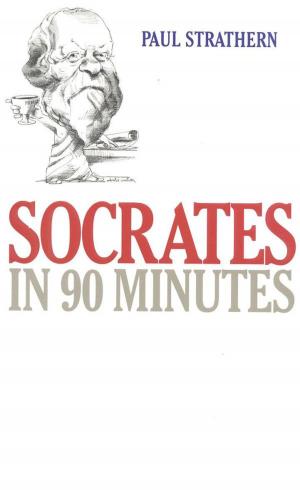The South Side
The Racial Transformation of an American Neighborhood
Fiction & Literature, Drama, Nonfiction, Entertainment, History, Americas, United States| Author: | Louis Rosen | ISBN: | 9781461730279 |
| Publisher: | Ivan R. Dee | Publication: | August 17, 1999 |
| Imprint: | Ivan R. Dee | Language: | English |
| Author: | Louis Rosen |
| ISBN: | 9781461730279 |
| Publisher: | Ivan R. Dee |
| Publication: | August 17, 1999 |
| Imprint: | Ivan R. Dee |
| Language: | English |
The South Side is a quietly powerful story of how a white, middle-class, and largely Jewish neighborhood, built from prairie on Chicago's far South Side in the optimistic years after World War II, rapidly and dramatically changed to a middle-class black community in the 1960s. It is a tale of two communities that collided almost by accident at a moment in America's history when race relations were starting to explode, and the profound impact this wrenching collision had on the lives of families and individuals on both sides of the event; a tale of how dreams were both realized and shattered in the confrontation between moral courage, spiritual ethics, and personal fears. The story is told in memoir and oral narrative by fifteen composite characters—two generations of former and current residents of the community, both Jewish and African American. Louis Rosen has made nothing up: the memories, thoughts, and feelings of the characters reflect exactly what was spoken during his extensive interviews. The names are fictional, but The South Side is essentially a work of nonfiction. It speaks to universal concerns: what it is like to grow up as part of a group that is outside the mainstream of American life; why the search for home is so difficult in late-twentieth-century America. The South Side is a story without obvious heroes or villains. It transcends the boundaries of specific individuals, place, and time to offer a vivid description of a struggle that is still very much a part of American life, and one that is likely to be with us for some time to come.
The South Side is a quietly powerful story of how a white, middle-class, and largely Jewish neighborhood, built from prairie on Chicago's far South Side in the optimistic years after World War II, rapidly and dramatically changed to a middle-class black community in the 1960s. It is a tale of two communities that collided almost by accident at a moment in America's history when race relations were starting to explode, and the profound impact this wrenching collision had on the lives of families and individuals on both sides of the event; a tale of how dreams were both realized and shattered in the confrontation between moral courage, spiritual ethics, and personal fears. The story is told in memoir and oral narrative by fifteen composite characters—two generations of former and current residents of the community, both Jewish and African American. Louis Rosen has made nothing up: the memories, thoughts, and feelings of the characters reflect exactly what was spoken during his extensive interviews. The names are fictional, but The South Side is essentially a work of nonfiction. It speaks to universal concerns: what it is like to grow up as part of a group that is outside the mainstream of American life; why the search for home is so difficult in late-twentieth-century America. The South Side is a story without obvious heroes or villains. It transcends the boundaries of specific individuals, place, and time to offer a vivid description of a struggle that is still very much a part of American life, and one that is likely to be with us for some time to come.















